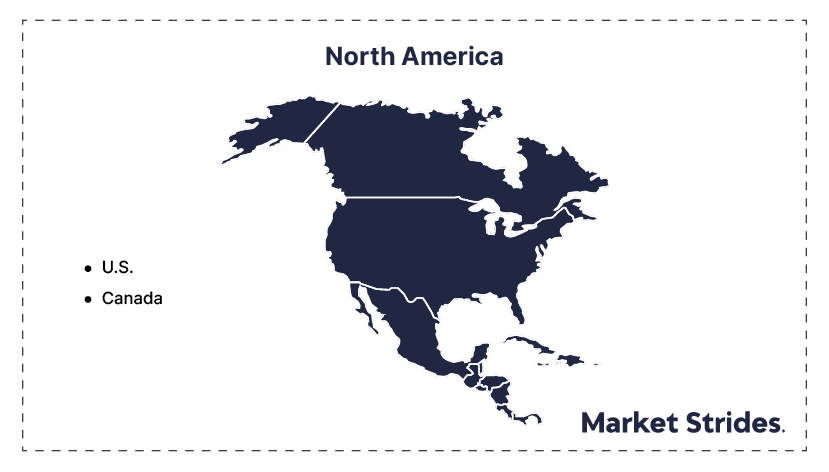The United States natural food & drinks market size was valued at USD 38.45 billion in 2024 and is estimated to reach USD 92.59 billion by 2033, growing at a CAGR of 10.23% during the forecast period (2025–2033). Growing awareness about the health risks associated with processed foods is driving demand for natural, organic, and minimally processed products. Consumers are seeking healthier options to maintain their wellness.
Natural Food & Drinks refer to products that are made with ingredients that are minimally processed and free from artificial additives, preservatives, or synthetic chemicals. These items are often derived from organic farming or sourced in ways that maintain the integrity of their natural composition. Natural foods and drinks are typically free from genetically modified organisms (GMOs) and may also be free from common allergens, like gluten or dairy. They emphasize whole, nutrient-dense ingredients that promote better health and well-being.
The growing preference for clean-label products in the U.S. reflects consumers’ desire for transparency in the food and beverage industry. Clean-label products are those made with minimal ingredients, with no artificial additives, preservatives, or synthetic chemicals. Consumers, especially millennials and Gen Z, are increasingly prioritizing health and wellness, and this shift is fueling demand for foods that are perceived as natural and safe.
Brands like Annie’s Homegrown and Simple Mills have capitalized on this trend by offering organic snacks with clear, recognizable ingredients. Moreover, companies such as Whole Foods Market have witnessed growing sales in their clean-label categories as consumers seek foods that align with their values of sustainability and health. This preference continues to shape the future of food manufacturing and marketing.
With numerous small and medium-sized players competing alongside established brands, the market is often difficult to navigate, especially for new entrants. This fragmentation leads to intense competition, making it challenging for companies to differentiate themselves and gain significant market share. Smaller brands may also struggle with distribution and marketing budgets, limiting their reach and growth potential.
The growing investment in plant-based and lactose-free products presents significant opportunities in the U.S. as consumer demand for alternative food options increases. With a rising number of individuals adopting vegan, dairy-free, and lactose-intolerant diets, companies are prioritizing the development of innovative alternatives.
Moreover, major food corporations, such as Nestlé and Danone, have also ramped up investments in plant-based and lactose-free offerings to capture the growing market, ensuring their presence in this high-demand sector.
| ATTRIBUTES | DETAILS |
|---|---|
| Study Period | 2021-2033 |
| Historical Year | 2021-2024 |
| Forecast Period | 2025-2033 |
| By Product Type |
|
| By Packaging |
|
| By Distribution Channel |
|
| Regional Insights |
|
The natural food segment holds the dominant share in the U.S. market, driven by consumer preference for organic, non-GMO, and minimally processed options. Growing health concerns, increased awareness about sustainable farming practices, and a shift towards plant-based diets contribute to its dominance. The demand for clean-label products, such as natural snacks, dairy alternatives, and whole grains, is increasing rapidly. Brands like Organic Valley and Annie’s Homegrown are leading the way, providing a range of natural foods that cater to the needs of health-conscious consumers across the U.S.
Paperboard packaging is the dominant choice in the natural food and drinks market, owing to its eco-friendly nature and recyclability. As environmental concerns grow, both consumers and companies are prioritizing sustainable packaging. Paperboard is lightweight, easy to handle, and offers a strong protective barrier for natural products. Many natural food brands, especially in the snack and beverage categories, are increasingly adopting paperboard packaging as a response to consumer demand for sustainable practices. This trend is driving growth in the market as brands seek to reduce their carbon footprint and enhance product appeal.
Supermarkets and hypermarkets dominate the distribution channel, serving as the primary retail channels for mass-market consumers. Major grocery chains like Walmart, Kroger, and Target offer extensive natural and organic product ranges, making them easily accessible to a wide audience. The convenience, extensive product variety, and competitive pricing available in these retail outlets make them a go-to choice for purchasing natural food and drinks. This growth is further supported by the rise of organic sections in traditional supermarkets, which are expanding to meet the increasing demand for healthier options.
The United States natural food and drinks market is experiencing steady growth, driven by increasing consumer demand for healthier, organic, and eco-friendly options. This trend is not limited to specific regions but is gaining momentum across the country.
States like California and New York are leading the charge, with their strong health-conscious consumer base and high concentration of natural food brands. California, for instance, is home to numerous organic farms and natural food companies, such as Annie’s Homegrown, which cater to the rising demand for plant-based and sustainably sourced products.
The East Coast, particularly in states like Massachusetts and New Jersey, also sees significant market penetration, thanks to an increasing preference for clean-label and non-GMO foods. The trend is evident in large retail chains like Whole Foods, which have expanded their presence nationwide, capitalizing on this demand.
Moreover, consumer awareness about the benefits of natural ingredients and clean eating is prompting supermarkets and foodservice businesses to stock more natural options. The rising adoption of plant-based alternatives, such as oat milk and vegan snacks, is a notable example. Companies like Beyond Meat and Oatly are making significant strides in this space, meeting the demand for plant-based products in urban and rural areas alike. The U.S. market’s growth prospects remain strong, fueled by rising awareness and preference for healthier food options.

Request Table of Contents (TOC), Please Fill below form



